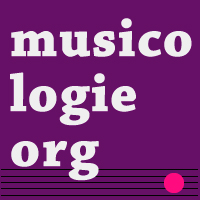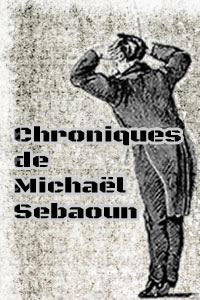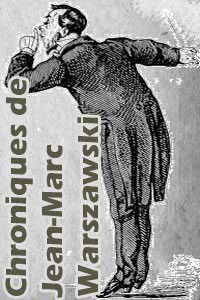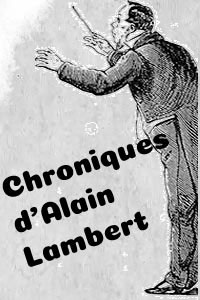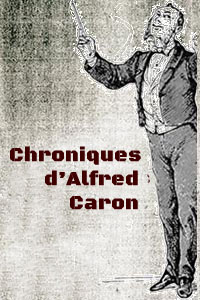
jeudi 30 avril 2015
A Conference on Sound, Media, and the Digital Humanities
30 avril-2 mai 2015, University of California, Los Angeles
Keynote speaker: Kiri Miller
CFP deadline: September 15
Co-hosted by Echo: a music-centered journal and the Digital Humanities Working Group at UCLA
As both material artifacts and cultural processes, sound objects and musical media invoke the Einsteinian mantra, “nothing happens until something moves.” Music studies have dealt with this concept through the veins of teleology, codification, and rupture, while the Digital Humanities extends this challenge to forms of inertia old and new. This conference appeals to the curator who recognizes the creator in herself; the writer who transitions from word processor to image processing; the composer as user-experience designer; the archaeologist turned 3D installation artist; the scholar as performer.
Grown from a tree with many branches, the landscape of the Digital Humanities has evolved into a transdisciplinary network that has tackled topics ranging from the curation of “radiant” texts and the interrogation of multimedia modes of argumentation, to the 3D modeling of historical space and the large-scale mapping of cultural data. Yet the soundscape of the Digital Humanities remains rather quiet, as scholar-practitioners and digital pedagogues have yet to embrace fully the ways in which sound and music can enhance the multimodal forms of teaching and research that the field has championed thus far.
This conference welcomes submissions on a broad range of topics related to sound, music, and multimedia. We are particularly interested in alternative format presentations, including workshops, lecture-demonstrations, roundtable discussions, performances, and other collaborative activities. Potential topics include, but are not limited to:
*Sounding texts and the textuality of sound: manuscripts, notation, software, and code for sound design, curation, and production
*Soundscapes and virtual worlds in architecture, archaeology, and beyond
*Open source, copyright, and the politics of information architecture
*Digital pedagogy: technology in the classroom; problems and approaches
*Analog(ue): histories of sound and music within and without the digital
*Theory and practice in production cultures, from musical performance to multimedia composition and editing
*Visualization and sonification: listening through “big data”
*Sonic warfare and digital ethics: surveillance, torture, noise, and silence
*Musical networks, old and new
*Sound play, games, and the ludohumanities
*GIS, locative media, and musical geographies
Please send 300-word proposals via Word document [last name_first name.docx] to inertiaconference at gmail.com by 15 September 2014. Along with your name, affiliation, and email address, indicate any audio, visual, or other needs for the presentation.
Songs of Social Protest, a two day symposium
30 avril-1er mai 2015, University of Limerick, Ireland
Following on from successful symposia on The Smiths, Morrissey, Riot Grrrl and David Bowie, the research cluster ‘Popular Music and Popular Culture', in conjunction with ‘Power, Discourse and Society' at the University of Limerick, Ireland, now convene a two day symposium to examine songs of social protest from a global perspective.
An approach that takes into account the radical contexts of music is central to examining processes of empowerment and disempowerment in the current neoliberal age. Underpinned by a theoretical framework derived from the work of Stuart Hall, Richard Middleton, Ian Peddie, Serge Dennisoff, Philip Tagg, and Johnathan Friedman we take as our starting point that popular culture (in the broadest sense), and music in particular, may reproduce or challenge the cultural / political status quo in contemporary societies across the globe. In this interdisciplinary conference, we therefore particularly welcome papers that address (but are not limited to) the following:
- What defines songs of social protest?
- Can songs of social protest create change?
- What makes a protest song efficacious?
- What forms do the discursive constructions of protests take within song – i.e. what are the structures of feeling?
- How is protest ‘performed'?
- Can we map typologies of protest song?
- Are particular music genres best suited to protest and if so, why and what are they?
- How do songs of social protest address inequalities on the basis of ‘Race', Class, Gender, Disability, Colonialism and Post-Colonialism, LGBTI identities, etc.
- How do we talk about and assess the relationship between songs of social protest and social movements?
- What informs discourses of ‘authenticity' in songs of social protest?
- What are the musical roots of protest songs – Punk, Riot Grrrl, Folk, Oi! etc?
- How do protest songs take on local and regional shape in different parts of the world?
- What are the foci and impetuses of contemporary songs of social protest across the globe?
- How can we trace (and critique) the social significance of commercial artists' occasional forays into the ‘protest' song genre?
- Have particular artists' (Bob Dylan, Swarathma, Billy Bragg, Las Cafeteras Saul Williams, Public Enemy, Kiyoshiro Imawano, Rage against the Machine, Piñata Protest, etc.) contributions made an impact of any social significance?
- Do protest songs today need a music video to create an impact?
- What are the different ways in which governments treat singers of social protest songs and how is that discursively framed in their respective media?
Please submit a Word document containing your paper title, a 250 word abstract, and author information including full name, institutional affiliation, email address, and a 50-word bio to popmusicandculture@ul.ie by 9th January 2015. A maximum of 30 minutes will be allocated to each conference paper (20 minutes for presentation and 10 minutes for questions).
Panel proposals (three presenters - 90 minutes) should include a 150 word overview and 250 word individual abstracts (plus author information listed above). We also welcome proposals for workshops, film screenings, performances etc. Notifications regarding acceptance will be sent by January 30th 2015.
Planned Academic Outputs:
The organisers are editors of the Discourse, Power, and Society book series published by Rowman & Littlefield International. It is their intention to propose an edited collection arising from fully revised papers initially presented at this symposium to the publisher as part of that series. It is also envisaged that symposium outputs will include a special issue of a journal.
Symposium Conveners:
- Dr. Martin Power, Dept. of Sociology, University of Limerick.
- Dr. Aileen Dillane, Irish World Academy of Music and Dance, University of Limerick.
- Dr. Eoin. Devereux, Dept. of Sociology, University of Limerick.
- Dr Amanda Haynes, Dept. of Sociology, University of Limerick.
For further information please contact: popmusicandpopculture@ul.ie
‘Popular Music and Popular Culture' and ‘Power, Discourse and Society' are interdisciplinary research clusters based at the University of Limerick, Ireland, which provide a platform for researchers working within sociology, ethnomusicology, cultural studies, sociolinguistics, political science, education, and social geography to come together to advance their shared interest in the critical analysis of popular music, popular culture and public discourses and the elucidation of their social meaning, significance and material impacts.
Who Pays? Who Plays? — Patronage and Entrepreneurship in American Music
Frederick Loewe Symposium in American Music
25-29 octobre 2015, University of Redlands
Composer in Residence: Libby Larsen
Scholar in Residence: Patrick Warfield
For the 2015 Loewe Symposium in American Music we welcome papers that address the challenges of advocacy, funding, and performance of new music in the Americas, past and present. Inspired by Composer in Residence Libby Larsen—co-founder of the American Composer's Forum and a highly collaborative and widely-recorded artist—we turn to questions of how American artists have sought support for the process of creating new music and how they have found audiences for its performance. How do the priorities and politics of private patrons, governmental organizations, or commissioning institutions influence (or at least attempt to influence) the creation of music? And how do composers negotiate the intersection of their own ideas and the values or requirements of others? How have conductors, composer's groups, or performing ensembles and individuals, influenced the way we create and hear American music? What new ways of creating and presenting new music have American musicians pioneered?
Please submit an abstract of no more than 500 words to Katherine_Baber@redlands.edu. Include your contact information and any technology requirements with the abstract. Submissions are due by May 22, 2015. Participants will be notified in early June.
Conference presenters may also submit an article-length version of their paper to be considered for inclusion in a planned special issue of American Music. The deadline for submission of those articles will be in March 2016.
Bach revient à Leipzig
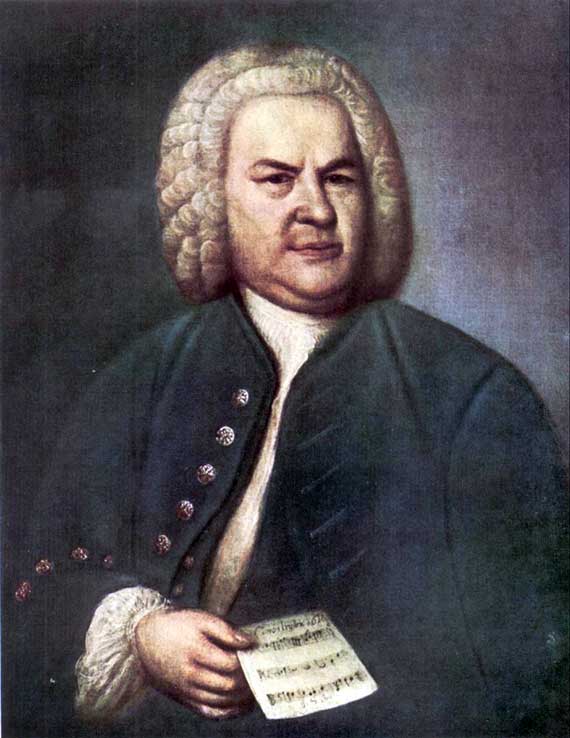
Le portrait le plus connu de Jean-Sébastien Bach, signé E. G. Haussmann, revient au pays. Son propriétaire américain l'a légué aux archives de la Société Bach à Leipzig.
Ce portrait daté de 1748, soit deux années avant la mort du compositeur, était en possession de la famille Jenke qui a fui l'Allemagne au début du nazisme. La famille Gardiner a protégé le tableau dans sa maison du Dorset, à l'abri des bombardements allemands de Londres. John Eliot Gardiner, devenu président de la Société Bach de Leipzig peut dire qui'l a été élevé sous le regard de Johann Sebastian Bach.
En 1952 le tableau a été vendu aux enchères (il est estimé aujourd'hui à 2,5 millions de dollars) à William Scheide, un collectionneur qui a fait fortune dans l'industrie du pétrole, décédé récemment à l'âge de100 ans, après avoir légué le tableau à la Société Bach de Leipzig, et sa collection de livres et manuscrits anciens (300 millions de dollars) à l'université Princeton où il a étudié.
Le tableau revenu à Leipzig où il a été peint sera présenté au public lors d'un festival dédié à Bach en juin.
Patachou est morte
La chanteuse et actrice Henriette Ragon, plus connue sous le nom de Patachou, est morte à l'âge de 96 ans.
Parmi ses chansons, les plus connues, on se souviendra de La Chansonnette, de Domino, Comme actrice, elle a joué dans French Cancan de Jean Renoir, Napoléon de Sacha Guitry ou encore Pola X de Leos Carax.
Le Bal Temporel.
Revue de presse musicale
(La Dépêche) Ces chefs invités par le Capitole
(La Nouvelle République) Le Printemps de Bourges croit en Paradis
(AFP/Le Point) Musique: le Buena Vista Social Club ne meurt jamais
(France Info) André Manoukian : « Le jazz est la plus belle musique du monde »
(France musique) Paris, ville hôte de la journée internationale du jazz
(France musique) Jérôme Pernoo veut créer le Centre de musique de chambre de Paris
(Les Échos) Les beaux vestiges de l'Opéra-Comique
(Le Parisien) Saint-Etienne condamnée pour défaut de réintégration du directeur de son opéra
musicologie.org |
Biographies de musiciens |
Articles et documents Flus RSS |
© musicologie.org 2014

Vendredi 1 Mai, 2015 2:48
| L | M | M | J | V | S | D |
|---|---|---|---|---|---|---|
| 01 | 02 | 03 | 04 | 05 | ||
| 06 | 07 | 08 | 09 | 10 | 11 | 12 |
| 13 | 14 | 15 | 16 | 17 | 18 | 19 |
| 20 | 21 | 22 | 23 | 24 | 25 | 26 |
| 27 | 28 | 29 | 30 | 31 |


